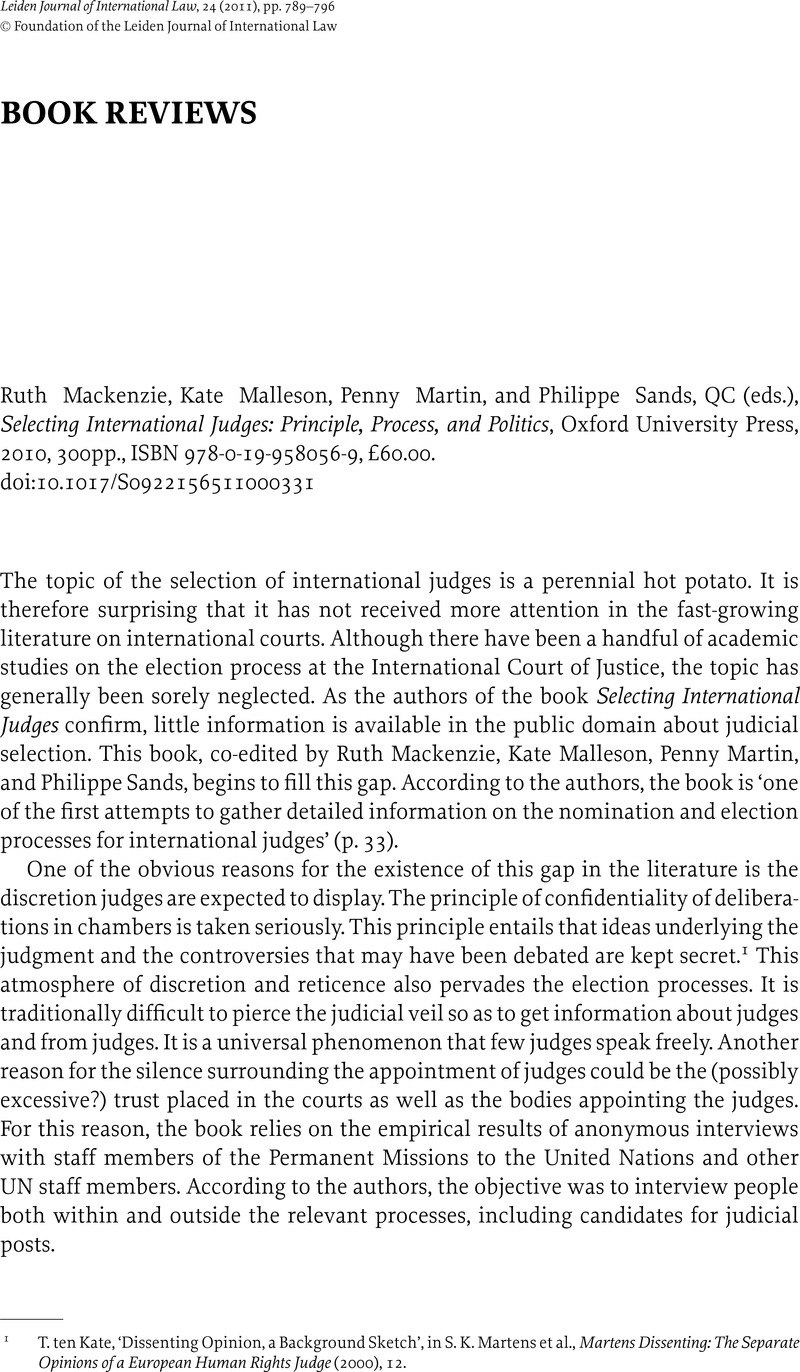No CrossRef data available.
Published online by Cambridge University Press: 05 August 2011

1 T. ten Kate, ‘Dissenting Opinion, a Background Sketch’, in S. K. Martens et al., Martens Dissenting: The Separate Opinions of a European Human Rights Judge (2000), 12.
2 Rome Statute, Art. 36(8)(a)(iii).
4 See Eldar, O., ‘Vote Trading in International Institutions’, (2008) 19 EJIL 3CrossRefGoogle Scholar, at 23.
5 See his chapter ‘Ensuring the Best Bench: Ways of Selecting Judges’, in C. Peck and R. S. Lee (eds.), Increasing the Effectiveness of the International Court of Justice (1997), 184.
6 For an interesting historical account, see O. Spierman, International Legal Argument in the Permanent Court of International Justice (2005), especially Chapters 5–7.
7 Ibid.
8 Nice, G., ‘Trials of Imperfection’, (2001) 14 LJIL 394CrossRefGoogle Scholar.